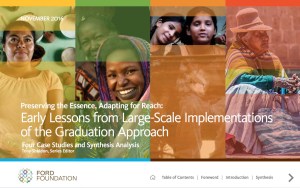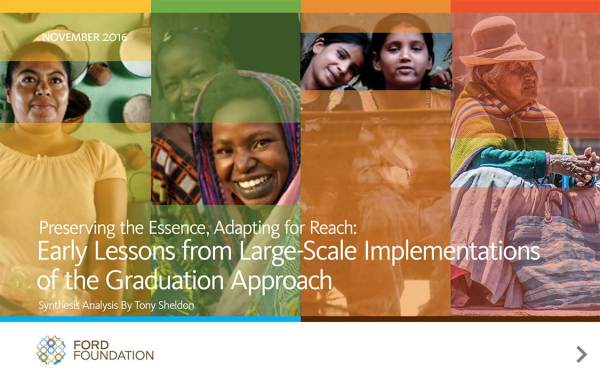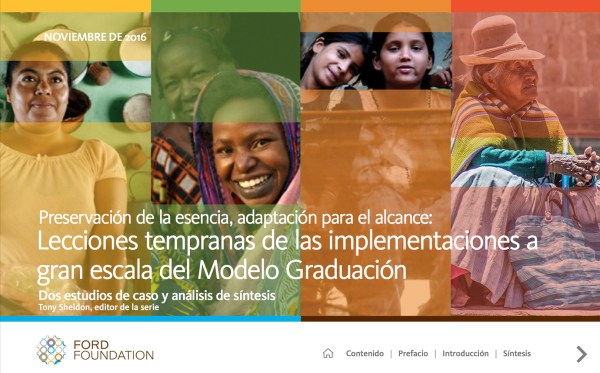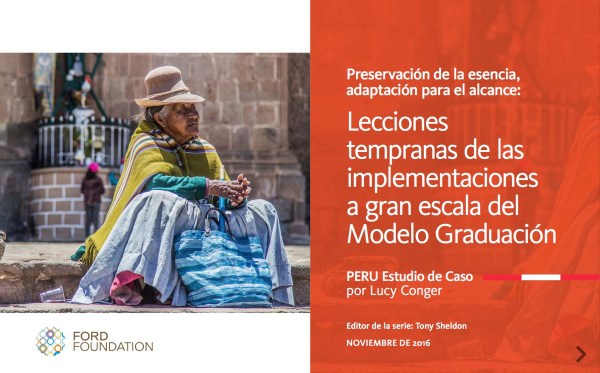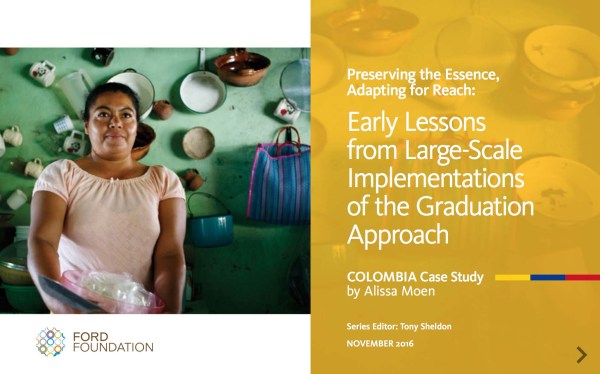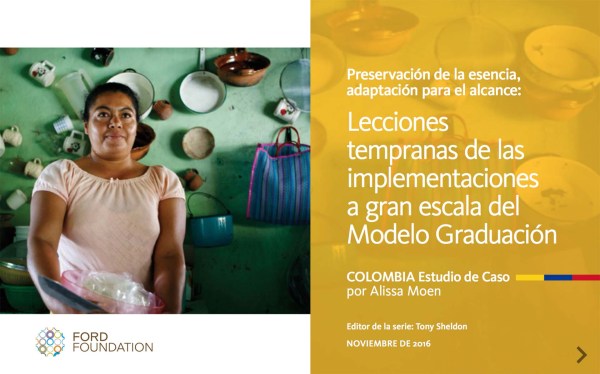Early Lessons from Large-Scale Implementations of the Graduation Approach
Around 900 million people, or about 13 percent of the world’s population, live in extreme poverty on less than $1.90 per day. Unfortunately, most development interventions have not addressed the needs of the extreme or ultra-poor because these populations tend to be the hardest to serve: they are socially and geographically isolated, own few or no assets, have limited livelihood prospects, and often suffer from poor health.
As a striking exception, one of the most promising approaches for promoting the social and economic mobility of the extreme poor has been the “Graduation Approach,” originally developed as the “Targeting the Ultra Poor” program by BRAC in Bangladesh. The Graduation Approach is a holistic livelihoods program designed to address the multidimensional needs of extreme poor households.
The Graduation Approach consists of five core components: time-limited consumption support; a savings component; an asset transfer; training in how to use the asset; and life skills coaching and mentoring. The idea is that this mix of interventions, offered in the appropriate sequence, would help the ultra-poor to “graduate” out of extreme poverty within a defined time period.
Based on the promising results achieved by the BRAC model, the Ford Foundation partnered with the Consultative Group to Assist the Poor (CGAP) to adapt and test the Graduation Approach through pilot projects at 10 sites in eight countries in Asia, Africa, and Latin America between 2006 and 2014. Ford and CGAP also put in place an ambitious research and learning program to document the impacts of the pilot projects and to disseminate the results widely.
Results of the randomized experiments from the pilots show that, compared to control groups, program participants earned increased levels of income and achieved sustained gains in household consumption, assets, and food security at least one year after the two-year pilot programs ended.
These findings suggest that the Graduation Approach is an effective and scalable intervention with impacts that are sufficiently robust to persist over time. Based on these interim findings, Ford and CGAP designed an ambitious strategy to reach out to government policy makers to help them understand the potential of the Graduation Approach to serve large numbers of extremely poor people develop sustainable livelihoods and move into the market economy over time. The key is embedding the Graduation Approach in government social protection or large-scale anti-poverty programs.
We commissioned case studies of three governments and one large NGO that are scaling the Graduation Approach within their ongoing programs. We hope that the lessons provided by the case studies and companion analysis encourage other governments and NGOs to adopt, adapt, and scale an approach that works.
